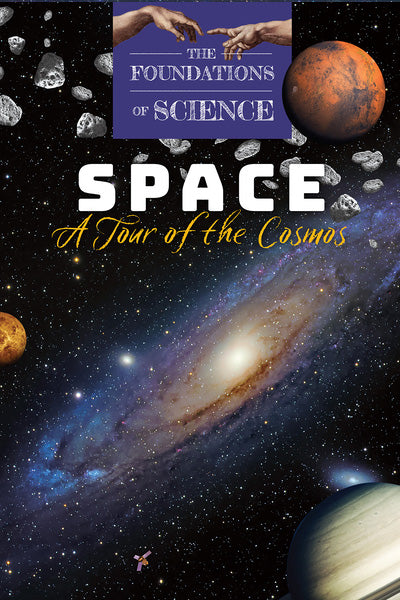
Space: A Tour of the Cosmos
U.S. Delivery in 3-9 business days.

The Foundations of Science introduces children to the wonders of the natural world in light of God's providential care over creation.
Too often we hear messages that science is in conflict with faith, but Pope St. John Paul II wrote that faith and science "each can draw the other into a wider world, a world in which both can flourish." Foundations seeks to spawn this flourishing in the hearts and minds of young readers, guiding them into a world that will delight their imaginations and inspire awe in the awesome power of God.
Authored by Dr. Timothy Polnaszek, this eight-part series covers an extensive scope of scientific studies, from animals and plants, to the galaxies of outer space and the depths of the ocean, to cells and organisms, to the curiosities of chemistry and the marvels of our planet. Still more, it reveals the intricate order found beneath the surface of creation and chronicles many of the Church's contributions to science throughout history.
Space: A Tour of the Cosmos launches us into the distant reaches of our solar system, and beyond! On this cosmic exploration, children will visit and become familiar with each of the planets that orbit our sun, learn the fascinating history of the scientific field of astronomy, meet famous astronauts, and take witness to the wonder and mystery of what lies even beyond our own galaxy.
Did you know . . .